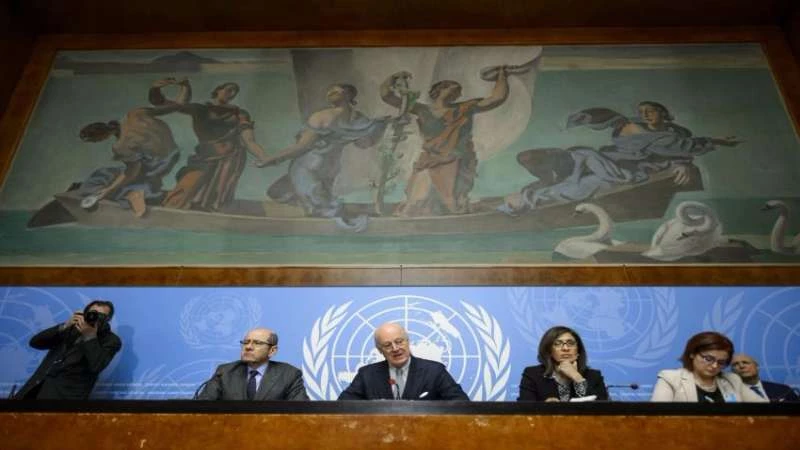It goes without saying that the diktats are entirely favorable to Assad and, if accepted, would amount to the victory of Assad and the acquiescence to Iranian and Russian hegemony over Syria. The diktats demand the creation of a ‘national unity’ government. This is designed to co-opt the reasonable ground, allowing Iran, Russia and now seemingly the US to brand those who reject this as warmongers, despite the fact that this ‘national unity’ government would be headed by none other than Assad.
This ‘national unity’ government headed by Assad would rule for a ‘transitional period, with no set timetable for his departure, after which there would apparently be elections. Again, given the key demand of the Syrian opposition was the institution of democracy, this sounds perfectly reasonable, but the catch is that, again, Assad would have the right to run in these elections. The idea that Russia and, even more so, Iran would invest so much in the regime only to see it melt away through genuine democracy is preposterous.
These diktats and the ‘peace process’ are not born of some kind of organic stalemate in a normal “civil war” but are rather diplomatic attempts by external forces that prop up an entity which controls less than 25% of Syrian territory to further neutralize the Syrian uprising. The Assad regime simply wouldn’t exist if not for Russia and, to a much greater degree, Iran.
The key to Assad’s survival was Iran’s direct intervention using its own Revolutionary Guard and Basij forces on the front lines against the opposition fighters in Syria.
Along with this, Iran mobilized various Shia jihadist proxy forces and mercenaries, most notably Hezbollah and militias from Iraq, Pakistan and Afghanistan. Without this intervention, Assad would have fallen years ago, something that Iranian regime officials have boasted about.
Politically speaking, and from the Iranian and Russian side of things, this is the context in which they’ve issued these diktats. If Assad can’t win militarily, the regime can be preserved through a mixture of brutal violence and the resulting gun-to-the-head diplomacy that emerges from these changing power relations.
In normal circumstances, the diktats would be perfectly in line with the farcical and meaningless nature of the peace process and would be readily dismissed, but this is perhaps no longer the case. Now the US seems to be not just supporting these diktats, but actively pressuring the Syrian opposition and their few remaining state supporters into acceding to them.
Contrary to conventional wisdom, the US has never supported the opposition forces in a manner that would match the Iran and Russia’s backing for the regime, but, diplomatically speaking, they did at least always hold to the Syrian revolutionaries’ demand that Assad must go, but this is simply no longer the case. Over the past year the US has dropped this demand and seem to be supportive of the Iranian and Russian plans for bringing an end to the rebellion.
While Kerry has denied that he tried to get the opposition to drop their precondition of Russia and the regime halting their bombardment of rebel-held civilian areas, the warning signs of a US turn have been there for a while. In 2014, accompanying their intervention against the lesser evil of IS, there was their failed efforts to shift the focus of the rebels solely onto fighting IS, which included attempts to get fighters to officially pledge that they’d only fight the jihadists.
The rise of IS combined with the neutralizing effect of Russia’s intervention and the rapprochement between Iran and the US are all decisive factors in the current position of the US. With Assad already saying that he isn’t willing to give up anything in these negotiations, it seems that every concession is expected to come from the opposition , based along these regime-saving diktats.
The idea that a just ‘peace’ could emerge out of these talks is something that is most brutally undermined by the fact that as Russia, Iran and the regime all endorse these negotiations, they continue in their attempts to exterminate the Syrian opposition and extinguish the very idea of Free Syria.
Sam Hamad in The New Arab



التعليقات (0)